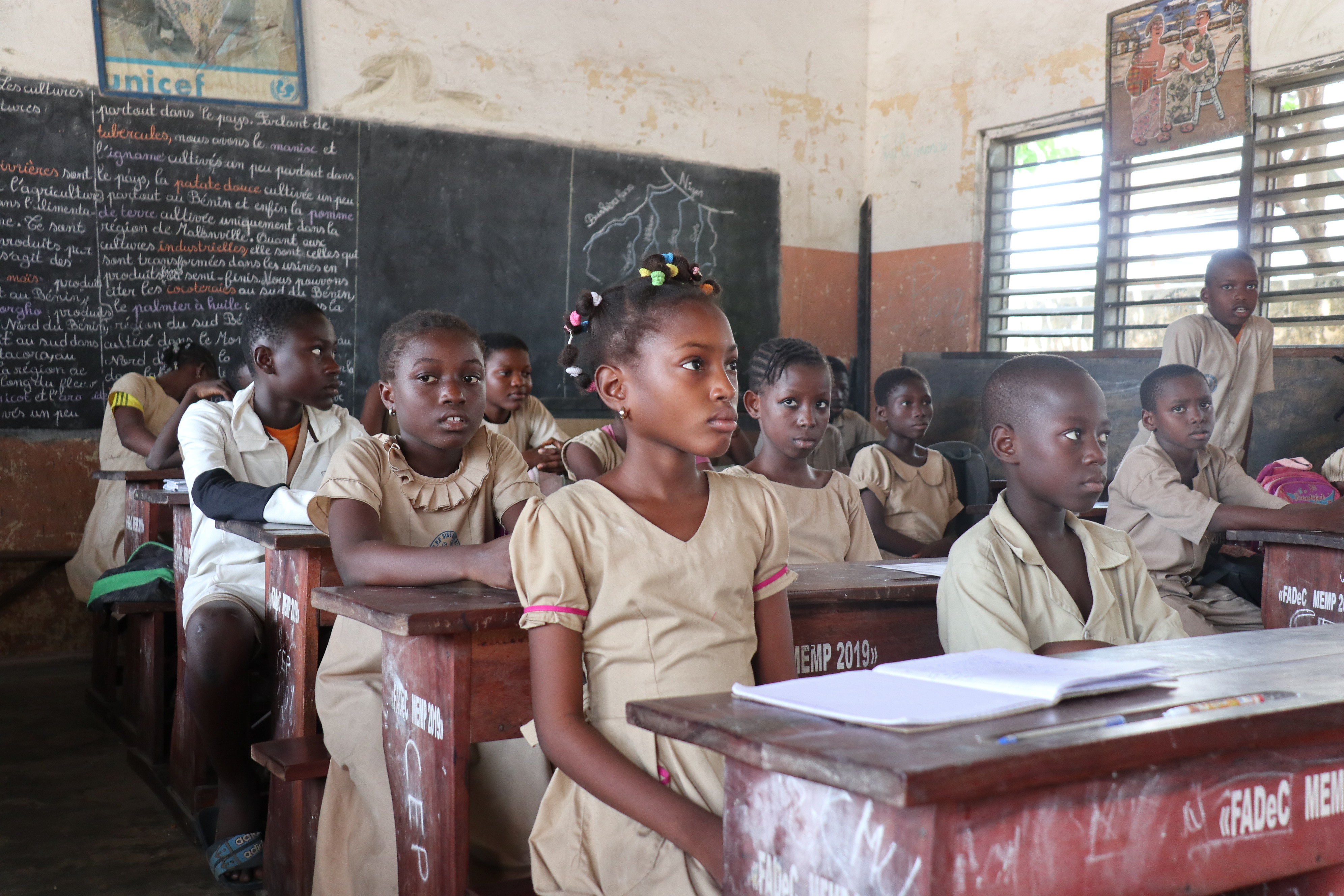Photo credits: Christine Redmond/Aide et Action
In Cambodia, national assessments of school reading have revealed that students are performing very poorly, with almost two-thirds of first grade students and half of second grade boys and girls unable to read a single familiar word. To address this, Aide et Action is promoting reading among primary school students and introducing mobile and digital libraries across the country.
Globally, one in three young people in low-income countries cannot read. The average female literacy rate remains about 16% lower than that of males, indicating that much more needs to be done to improve girls' access to quality education. In Cambodia, limited access to reading and learning tools and an underdeveloped teaching staff are the main factors preventing girls and boys from reaching their full potential.
Digital libraries
Research indicates that extreme gender inequalities also exist in Internet access, digital skills and online rights in developing countries. The World Economic Forum recommends that girls' education be encouraged in STEAM (or STEA® - development of Science, Technology, Engineering, Arts and Mathematics) and ICT (Information and Communication Technologies) from an early age and to teach digital literacy to women and girls as a first step to bridging future gaps. At Aide et Action, we also believe in the empowering potential of ICT as a weapon against poverty and gender inequality.
Since 2013, we have embraced 'ICT for Education' as a key concept in Cambodia, using inclusive technology to deliver quality education by digitising books, developing a learning app and installing new tools and libraries in schools and communities across Cambodia. Digitising books and making them available through our libraries, tablets and via an iOS and Android app means that books are more accessible and free for girls and boys. For those with low literacy levels, we also offer educational games and audio books in Khmer - the official language of Cambodia - and in ethnic minority languages.
Mobile bookcases
Like everything else, our job is to strike a balance and meet the needs of our beneficiaries. In addition to our innovative technologies, we also promote a reading culture by bringing physical books to rural and remote communities via our mobile libraries, which take the form of tuk tuks (three-wheeled vehicles) and motorbikes filled with reading materials.
Thida and her friends read together when Aide et Action's mobile library stops in their village in Kep province, Cambodia.
In Kep province, we operate two mobile libraries that take books to remote villages far from the city. The tuk tuks stop once a week in each village along the way, but sometimes extend to twice in a week, much to the delight of the local children.
Gendered responsibilities
Ten-year-old Thida* looks forward to the visit of the mobile library every week. With her mother and father away from home, working long hours every day, the majority of household chores fall to Thida, including caring for her younger sister. As reported by the Japan International Cooperation Agency, the increased demand on the time and labour of Cambodian women means that household chores, which were traditionally the responsibility of the woman, are instead being passed on to the daughters of the family.
Thida and her younger sister pictured in their village in Kep province, Cambodia.
Thida's typical day consists of going to school in the morning, taking care of her little sister in the afternoon and cleaning the house in the evening. However, she makes sure to leave the house with her sister-in-law on the afternoons when the mobile library stops. "I like to come because there are always books to read. The alphabet and picture books are my favourites because they are easy to understand," says Thida.
STEAM Education
"I want to stay in school and study hard. I don't know why but science is my favourite subject and I want to study it more," says Thida. Increasing learning outcomes for primary school students like Thida through access to education STEAM (Science, Technology, Engineering, Arts, Mathematics) is another of our goals with our project in Cambodia. By 2021, we aim to have 3 STEAM corners in high schools and to train 15 teachers on how to conduct STEAM activities with our STEAM Corner equipment/toolkits. The expected number of boys and girls having access to STEAM education by 2021 is 450.
Thida is reading a book she borrowed from Aide et Action's mobile library during her visit to her village in Kep province, Cambodia.
The Education 2030 agenda recognises that gender equality requires an approach that "ensures that girls and boys, women and men not only access and complete education, but are also empowered in and through education." We work in partnership with Cambodians, the Ministry of Education, Youth and Sports, schools, communities and local authorities to maximise the impact of our project and build a culture of dialogue, constructive thinking and empowerment that leaves no child behind.
* Names of children under 18 years of age have been changed






